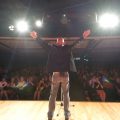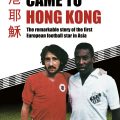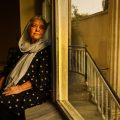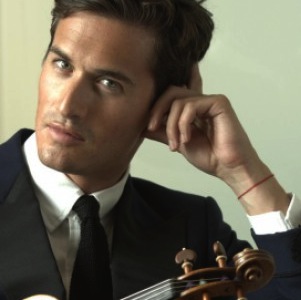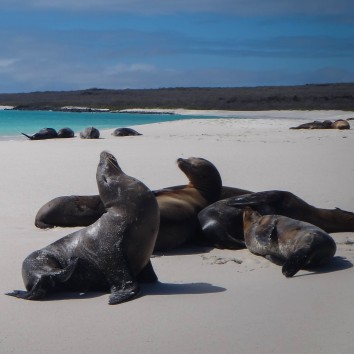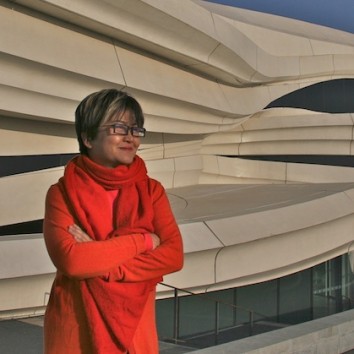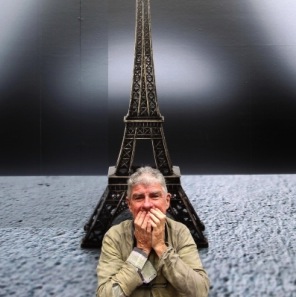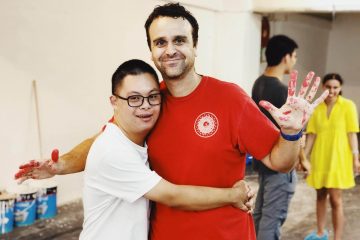
‘A huge, caring humanitarian movement’
— February 17, 2023Jeff Rotmeyer grew up in Canada, excelled at sports as a child, then moved to teach English in Korea, where he met his wife, who moved with him to Hong Kong
I was born in Surrey, outside Vancouver, in Canada, in 1977, and am an only child. My dad was born in Holland and came to Canada when he was six. He was a professional soccer player and then got into business. My mum worked the night shift as a cardiac technician for over 20 years. She has always been someone who puts me or others around her first.
Sport was a huge part of my life growing up. I started playing soccer at the age of four and my dad was my coach.
With a little help from my dad, I started my first business when I was about 13, called Shutter by Jeff. I made the shutters after school in the garage and did my own invoicing.
My parents separated for the first time when I was four. My mum took him back to protect me (and keep the family together), it was a sacrifice on her part, but I was oblivious to that as a child. When I was about 14, they got divorced.
Love on the dance floor
I was a big athlete in my youth. At high school I was athlete of the year, captain of the basketball team, captain of the volleyball team and on the golf team.
I got a scholarship to Marian University, in Indiana, in the United States. I knew I liked sports and entrepreneurship and business, so I studied sports management. I was not a great student, I had a lot of fun, partying and having a great time.
I was clueless about what I wanted to do with my life and, after I graduated, I moved back to Vancouver and coached football full time, which was fun, and I loved teaching.
A knee injury put me out of action for a few months and a friend suggested that I teach English in Korea. I was accepted quickly and moved there in 2001. After six months in Seoul, I met my future wife, Juliana, in a nightclub on the dance floor.
She was an American architect teaching at university. We met up again the next day and, a few days later, I bought her a bicycle and we started riding around Seoul and just fell in love. I proposed to her after three weeks and we’ve been married now for 19 years.
Reaching out
In 2005, we moved to Hong Kong – Juliana began her PhD at Hong Kong University and I got a job in the NET (Native-speaking English teacher) scheme as an English teacher. I taught for two years at a school in Choi Hung and was then transferred to a CCC Kei Wan Primary School in Sai Wan Ho and spent 11 years there.
It was a very exam-focused system, the students were stressed, so I tried to make them laugh and let them be kids.
A year after arriving in Hong Kong, I was looking to do some charity work and began coaching a basketball team for boys who had fallen into drugs and gangs. Sport is a good way of building trust with an individual.
I reached out to the asylum seeker community and organisations that supported them and invited them to play in a football team with me.
The beautiful game
At an event, I was asked if I would run a similar programme for the Down’s syndrome community. I knew nothing about Down’s syndrome, but said I’d like to try. I met with 20 of their members and we had a football session and it was a beautiful experience.
I coached the team on Saturdays, and it became the highlight of my week. I got a sponsorship to take 20 members and 10 parents to London. Many had never been on a plane before.
We met with royalty, played at [the home of Chelsea FC] Stamford Bridge and even played the half-time show at Fulham [another club in England’s Premier League]. They taught me a lot about vulnerability and the importance of true kindness.
So cool
In 2010, a friend was going to Tung Chau Street Park (in Sham Shui Po) to visit the homeless community and take them food and asked if I wanted to go with him. After that first visit, I had an idea to invite friends to go with me one night a month.
We each chipped in HK$100 and bought bananas, Yakult, Oreos and mosquito coils. Over time, more friends joined, and the group got bigger and we moved to doing it twice a month, then weekly and then several times a week and added another location.
Charity work doesn’t have to be boring. We had a lot of parties. I had a theme night called “How cool is that”, where a portion of the drink money went to charity.
Mean streets
I was living in North Point and nearby was a footbridge where eight people slept. On my way home I’d go by and say hi and give them some food.
One day there was a couple there from the Philippines, Bong and Brix. I got to know them over a month. Bong had been a singer at The Peak Lookout for 17 years. He had really bad diabetes and had an accident that meant it was difficult for him to walk, which led to him and his wife being homeless and their son taken away from them.
I was throwing parties and he was a great singer, so it was an easy fit for him to work with us. We raised some money through the parties and got him and his wife into a home in North Point. It was a long process, but eventually they were reunited with their son.
I wouldn’t have started ImpactHK if it were just about doing the Kindness Walks and feeding the homeless; it was realising that we could actually help someone off the street. Bong taught me how friendship on the streets is even more important than a room.
Hong Kong spirit
In 2017, I registered two charities on the same day – the homeless charity ImpactHK and Love 21, working with the Down’s syndrome and autistic communities. I couldn’t choose between the two because I loved them both so much and doing two at once helped me a bit with my legal fees.
I never imagined they would both be where they are today. In 2018, when we started to generate some income, I gave up teaching so I could become CEO of both charities and bring in a board of directors. It’s been a really steep learning curve.
Today, ImpactHK has close to 50 full-time staff and about a HK$30 million (US$3.8 million) annual budget. There have been about 30,000 volunteers since that first Kindness Walk; it’s been a huge, caring humanitarian movement in a city that I used to think of as quite cold.
A final farewell
My daughter was born in 2010. She’s just started school in New Zealand. She’s horse crazy, and it’s a school where she can ride every day. She wants to be a large-animal vet.
My mum has Parkinson’s disease. It is a cruel disease, she’s only 72. I have been going back to Canada a lot during the pandemic and, in Hong Kong, spend the first couple of hours of my day calling my mum, coordinating her care, making sure her medication is right. In the last year, it’s got really bad and she’s not able to get out of bed by herself now.
I’m going to Vancouver soon to be with her. We are going to do a medically assisted death – thankfully, she has that right in Canada, because she is suffering.
In theory, it’s a great option, but it’s very hard. Even though she is in so much pain, it is very hard to turn the lights out on yourself – it is scary. She has been my inspiration, my rock, my whole life.
All about education
Most homeless charities look at shelters, food, medical help and employment, when actually the most important elements of people’s lives are friendship, love, community and purpose. When you start to put the focus on that, you see people make huge transformational changes in the hope of overcoming homelessness.
We focus on education because that’s the greatest way to help people out of extreme poverty. And it’s not educating people on the streets, it’s educating society. Taking the time to get into the school system.
Kids are open-hearted. We will really invest in education to make sure more people understand the importance of caring for people in the community, standing up and making sure that people outside are not judged unfairly.
Love 21 has changed my life and I’m going to spend the rest of my life supporting that community. Our centre in San Po Kong burned down in January and we have started crowdfunding for that. I would love to expand Love 21 and spread throughout Asia, once we get our model right.
Original Link: Post Magazine

